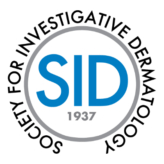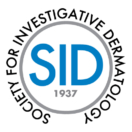The Wang Lab in the Department of Dermatology (http://wanglab.derm.stanford.edu/), located within the Stanford School of Medicine, is eager to add energetic and passionate researchers (post-docs, bioinformaticians, and research associates) to our team!
The lab takes an interdisciplinary approach to studying fundamental mechanisms controlling gene expression in mammalian cells, and how epigenetic mechanisms such as DNA methylation, chromatin modifications, and RNA influence chromatin dynamics to affect gene regulation. We are particularly interested in 1) how various dynamic epigenetic changes in chromatin structure impact gene expression during stem cell pluripotency/self-renewal, iPSC differentiation (to keratinocytes, cardiomyocytes, and neurons), and reprogramming, 2) how three-dimensional chromosomal architecture and its dysregulation contribute to development of diseases such as aging and cancer, and 3) how noncoding regulation of gene expression programs are conserved through primate evolution, with a focus on the epithelium.
The postdoctoral positions will involve close interactions both within the lab and with collaborating groups at Stanford University and at other institutions. Postdoctoral training includes participation in seminars and retreats of the Stanford Program in Epithelial Biology, the Stanford Program in Cancer Biology, and the Stanford Institute for Stem Cell Biology and Regenerative Medicine. General Information about postdoctoral fellowships at Stanford may be found at the Stanford Postdoctoral Scholars site: postdocs.stanford.edu.
We also welcome inquiries from individuals (bachelor’s or master’s) dedicated to establishing critical bioinformatic resources for the lab to develop and apply computational pipelines and analytical tools for clinical studies involving single-cell multi-omic studies at scale. These projects are highly dynamic, and collaborative, involving cloud-based computational and analytical skills, contextualizing findings, and communicating results. We also welcome individuals (bachelor’s or master’s) dedicated to establishing and leading experiments using stem-cell and organoid based models for tissue inflammatory diseases (both cutaneous and non-cutaneous). Both positions will provide teaching and mentorship growth opportunities. If you have these skill sets, please send your CV and a statement of interest to Kevin.
If you are interested in joining the fun, please write to Kevin at kevwang@stanford.edu with your general scientific interests and their potential resonances with our research, the style/type of research you’d like to pursue in our lab, and a short summary of your key discoveries to date. Please include your CV as well as the names and contact info for three references. We are open to joint mentorship arrangements with local or international labs. Please note: applicants are strongly suggested to submit a Diversity, Equity, Inclusion statement. Applications will be reviewed on a rolling basis when all documents are received.

